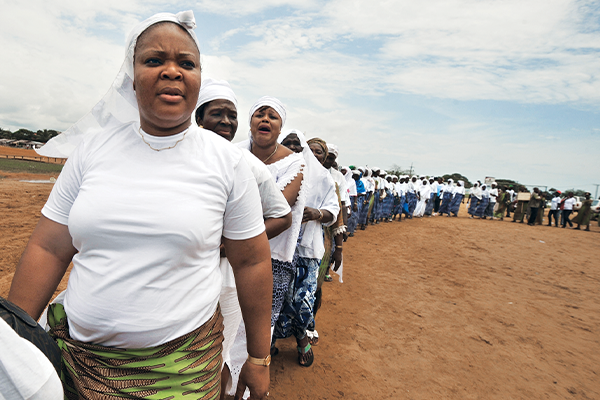DECADES AGO AND an ocean away, there lived a dictator who called himself a president. From 1997 to 2003, Charles Taylor served a chaotic term in Liberia’s highest office, presiding over a civil war that killed tens of thousands of his own people and inflicted traumas like rape and child soldiering on many more. Taylor was later found guilty of “some of the most heinous and brutal crimes recorded in human history” by an international criminal court at The Hague.
Taylor’s regime was ended, in part, by the prayers of ordinary Liberian women. In 2002, a 30-year-old single mother and social worker named Leymah Gbowee awoke from a sleeping dream in which she believed she heard the voice of God say, “Gather the women to pray for peace!” Gbowee founded a series of public prayer meetings that eventually included thousands of women. Over the next few years, as the women demanded peace from God and from their leaders, Taylor was arrested, violence ceased, and Liberia elected Ellen Johnson Sirleaf as president, Africa’s first female head of state.
I first heard about the Women of Liberia Mass Action for Peace movement on the last Friday night of the Biden administration. Over dinner, a friend recalled hearing a talk about Liberia’s peace movement. “These women just stood outside the presidential palace,” she recounted, “and prayed until he was removed from office.”
The following week, as Donald Trump was inaugurated for the second time and his executive orders began to reverberate around us like so many gunshots, I couldn’t stop thinking about the Liberian women who prayed. What might it look like, I wondered, to do something like that here in America?
Read the Full Article

